Food swaps to help you eat well in pregnancy
Eating well in pregnancy means trying to eat a range of different foods everyday. This means you and your growing baby will get all the nutrients you need to stay healthy. Foods that are heavily processed, high in sugar, salt and fat are not so good for you and your baby. But you can still enjoy these occasionally as part of a healthy, balanced diet.
Sometimes, sugar, salt and fat are hidden in many of the foods we eat every day, especially foods that come ready prepared. This means we may be eating a lot more than we realise. Food labels can help you understand which foods are high in sugar, salt and fat.
It is also important to be aware of some things that you should avoid eating and drinking completely when pregnant and some foods that need to be prepared in a certain way.
These ideas for swaps focus on foods that will provide you and your baby with healthy nutrients and cut back on sugar, salt and fat.
Switching to wholegrain
Swapping white bread, toast, bagels, pitta bread, chapati or rolls with wholegrain or wholemeal versions is an easy way to get more fibre and vitamins. These foods will make you feel fuller for longer and can stop you snacking on unhealthy foods.
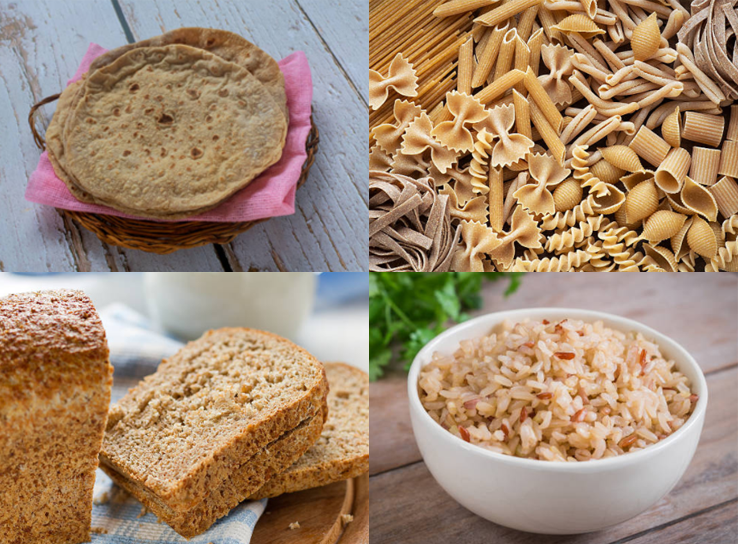
Cutting down on sugary snacks
If you are looking for a sweet treat and reaching for the biscuit tin, try these ideas which can be lower in sugar and fat.
- Peanut butter on wholemeal toast with slices of banana.
- A handful of unsalted nuts, seeds and dried fruit.
- A low-fat yoghurt with added tinned or fresh fruit.
- A slice of malt loaf or a toasted teacake.
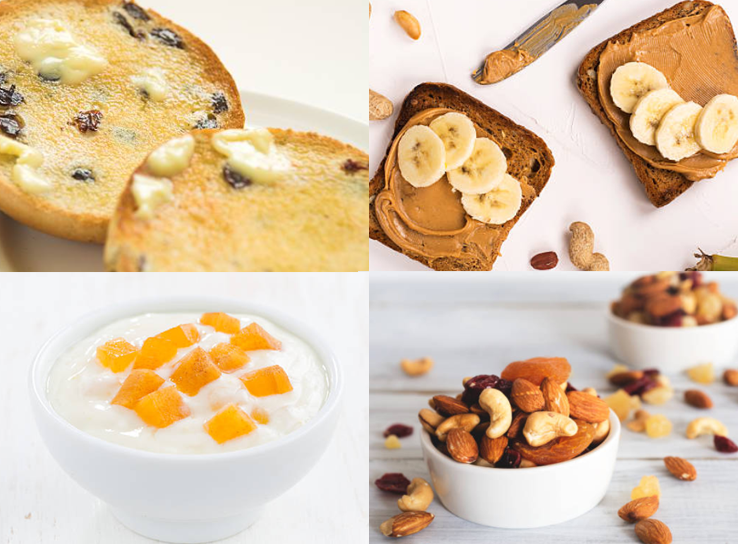
Avoiding sugary cereals
If a cereal has more than 22.5g of total sugars per 100g of cereal it is high in sugar. Try swapping high sugar cereals for:
- porridge with added fruit
- wholegrain cereals such as puffed wheat and shredded wheat type cereals
- muesli with no added sugar.
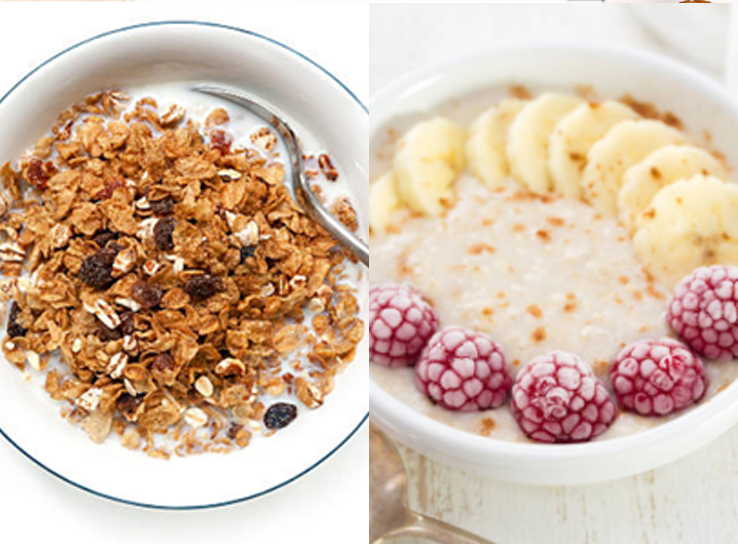
Cutting down on processed meat and fish dishes
Processed meats include:
- sausages
- burgers
- chicken nuggets
- kebabs
- meat pies
- fish fingers or fish cakes.
We can't get as many nutrients from these processed foods. This is because they have been diluted by the added breadcrumbs, batter (which has lots of fat) or other fillers. It is quick and easy (and can be cheaper) to cook meat and fish if you buy it in its ‘natural state’. For example, it can be quicker to cook slices of chicken breast or fish in a non-stick pan than to cook chicken nuggets in the oven.
Always take care when preparing raw meat at home, we have tips for preparing food safely.
We also have some ideas for some healthy meals you can make at home including homemade fish fingers.

Saving on your sides
Try saving fried chips and potatoes, yams or plantains cooked in lots of oil or fat for special occasions. Instead there are lots of options for your sides:
- Boiled or mashed potatoes or yams (you can leave the skins on for extra fibre!).
- Baked potato in its skin (you can do this in a microwave).
- Home-made wedges cooked in the oven.
- Try baking plantains in the oven instead of frying.
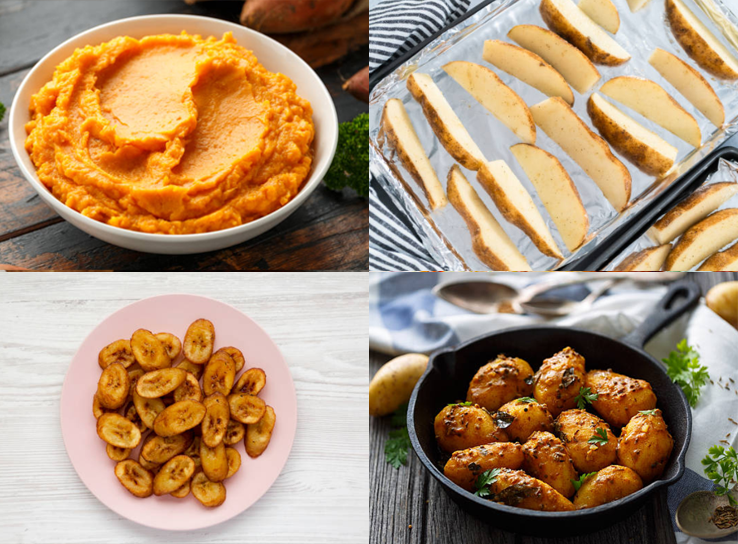
Vegetable and cream-based sauces
Tomato and vegetable based sauces for pasta or curries can help you reach your 5 a day and don't have as much fat as cream-based sauces. For pasta, you can also try pesto sauces which are easy to make at home and you can adapt them to add herbs, vegetables and ingredients you enjoy.
If you want to get that creamy texture, try using less cream and cheese or replace with:
- light coconut cream
- milk or plant-based milks
- blitzed up vegetables like avocado, cauliflower and squash
- cream cheese added to pasta.
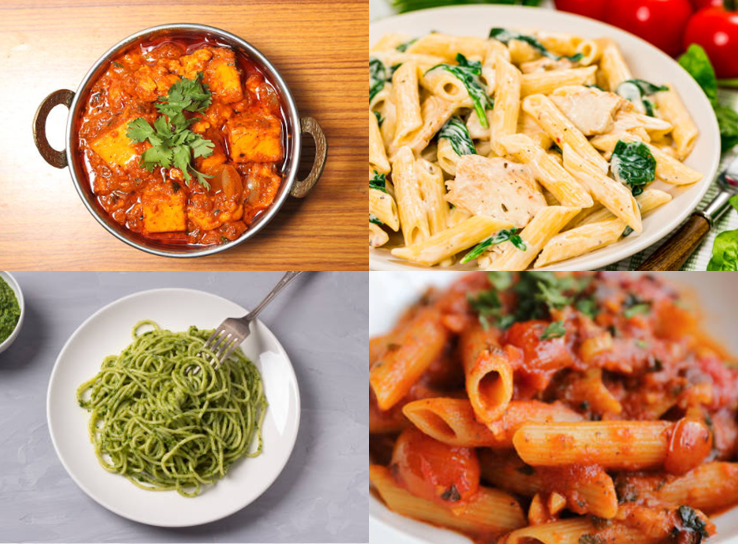
Changing up your drinks
It is important to stay hydrated through pregnancy, but many of us are drinking a lot of extra sugar at the same time. A bottle of water contains 0g of sugar, in comparison to a bottle of fizzy drink which can contain around 54g of sugar.
Instead try swapping fizzy drinks and sugary squashes for:
- Fruit or herbal tea (that are suitable for pregnancy) - these will help keep you hydrated without adding caffeine, which can be harmful during pregnancy.
- Semi-skimmed or skimmed milk contains nutrients that are beneficial to you and your baby.
- One glass of fresh fruit juice a day can be a useful source of vitamin C. But it can damage your teeth if you drink it regularly, as it contains sugars and acid. Try diluting with water and drink it a meal times to help protect your teeth.
- If you like drinking squash, try to dilute it as much as possible so it is less concentrated and contains less sugar.
Remember, when it comes to drinking fruit juice, eating the whole fruit is a healthier option. If you eat a whole fruit you get the benefit of the juice as well as fibre and minerals. You will also feel fuller for longer!
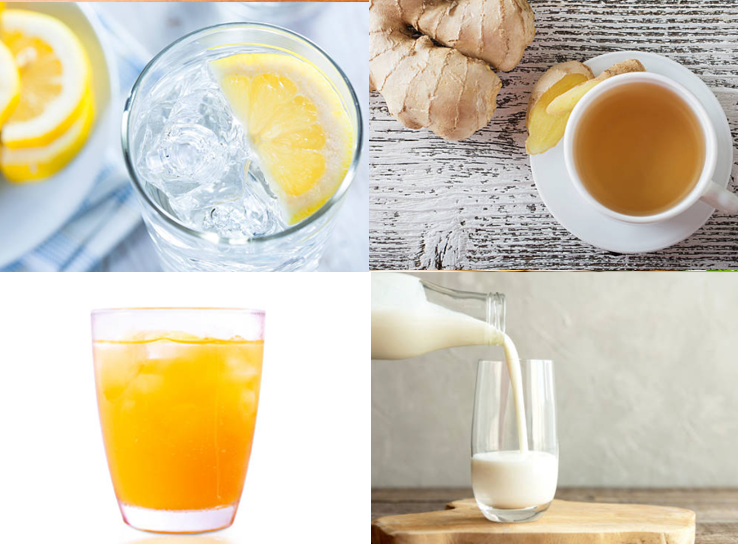
Other simple swaps
- Swap full fat milk for semi-skimmed or skimmed milk (you do not need to drink full-fat milk during pregnancy to help your baby develop).
- Swap streaky bacon or smoked bacon for unsmoked back bacon with excess fat trimmed off.
- Swap full-fat hard cheese, such as Cheddar for a smaller amount of stronger cheese (so you can use less) or swap for half-fat or reduced-fat cheese.
- Swap lard or hard spreads (like butter) in cooking for small amounts of vegetable, olive oil or rapeseed oil.
- Cut down on refined white or brown sugar - you can quickly get used to hot drinks without added sugar and you do not need to put sugar on breakfast cereal.
NHS Choices (accessed 28/10/20) Having a healthy diet in pregnancy. https://www.nhs.uk/conditions/pregnancy-and-baby/healthy-pregnancy-diet/
NHS Choices (accessed 28/10/20) Healthy breakfast cereals: https://www.nhs.uk/live-well/eat-well/healthy-breakfast-cereals/
NHS Choices (accessed 28/10/20), Healthy food swaps: https://www.nhs.uk/live-well/eat-well/healthy-food-swaps/
NHS Choices (accessed 28/10/20) Water, drinks and your health: https://www.nhs.uk/live-well/eat-well/water-drinks-nutrition/
Muraki et al (2013) Fruit consumption and risk of type 2 diabetes, BMJ 2013;347. http://www.bmj.com/content/347/bmj.f5001
Read more about nutrition in pregnancy
-
Read more about 'Fasting in pregnancy '
Fasting in pregnancy
-
Read more about 'Understanding food labels '
Understanding food labels
-
Read more about 'Vegetarian, vegan and special diets in pregnancy '
Vegetarian, vegan and special diets in pregnancy
-
Read more about 'How to eat well in pregnancy '
How to eat well in pregnancy

